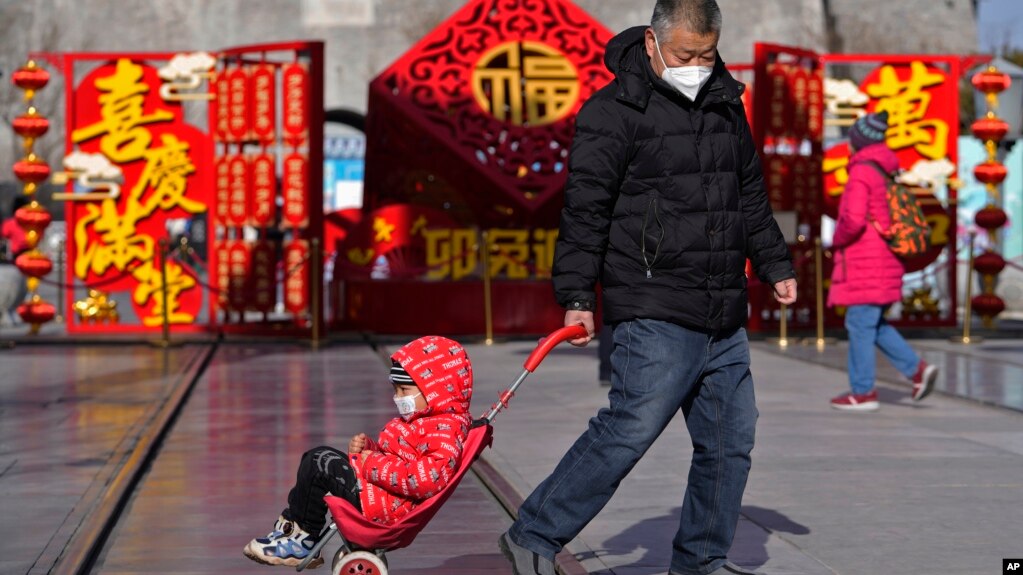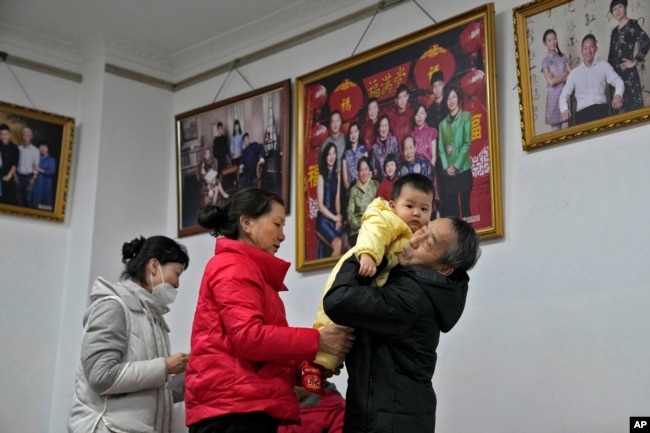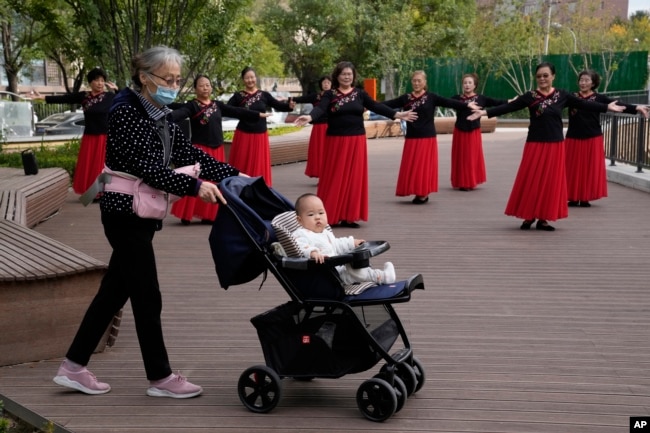China’s Population Drops for First Time in 60 Years

China's population dropped last year for the first time in 60 years.
The turn is expected to start a long decrease in China’s population, placing pressure on the country’s and the world’s economy.
China's National Bureau of Statistics reported a drop of about 850,000 people for a population of 1.4 billion in 2022. The drop is the first decrease since 1961, the last year of China's Great Famine.
That possibly makes India the world's most populous nation. United Nations experts predicted last year that India would have a population of 1.4 billion in 2022. They also estimated that China’s population will decrease by 109 million by 2050 though they did not expect the South Asian nation to overtake China until this year.
Some experts believe China’s population has been dropping for a few years. The recent numbers represent a big change in a country that once sought to control population growth through a one-child policy.
Many wealthy countries, including Japan and South Korea, are struggling to deal with an aging workforce, which could slow their economies. But experts say a population decrease will be even more difficult to deal with in a developing economy like China’s.

A man carries his grandchild preparing to leave after taking a family photo with his family members at a photo studio in Beijing, Tuesday, Jan. 17, 2023. The world's most populous country has worried for years about an aging population's effect on the economy and society, but the population was not expected to go into decline for almost a decade. (AP Photo/Andy Wong)
Yi Fuxian is an expert on Chinese population trends at the University of Wisconsin-Madison. Yi said, “China has become older before it has become rich.”
He added that China's shrinking labor force and the expected downturn in manufacturing would add to high prices and high inflation in the United States and Europe.
Zhiwei Zhang is chief economist at Pinpoint Asset Management. He told Reuters, "Economic growth will have to depend more on productivity growth.”
But Kang Yi, head of China’s National Bureau of Statistics, dismissed concerns about the population decrease. Kang told reporters that "overall labor supply still exceeds demand".
The bureau said the working-age population, between 16 and 59 years old, was 875.56 million, about 62 percent of the national population. Those aged 65 and older totaled 209.78 million, about 14 percent of the total population.
The population numbers do not include Hong Kong, Macao or foreign residents.
Stuart Gietel-Basten is a professor of social science at Khalifa University in Abu Dhabi. He told the Associated Press that if handled correctly, a decreasing population does not necessarily lead to a weaker economy.
“It’s a big psychological issue. Probably the biggest,” Gietel-Basten said.

FILE - An elderly woman wearing a mask pushes a baby in a pram past plaza dancers at a park in Beijing, China, Thursday, Oct. 14, 2021. (AP Photo/Ng Han Guan)
Lowest birth rate on record
In 2022, the bureau reported 9.56 million births with 10.41 million deaths.
Last year, China's reported birth rate was just 6.77 births per 1,000 people. The number is down from a rate of 7.52 births in 2021 and marks China’s lowest birth rate on record.
Officials also reported that the number of Chinese women of childbearing age, which the government defines as aged 25 to 35, fell by about 4 million.
The death rate, the highest since 1974 during the Cultural Revolution, was 7.37 deaths per 1,000 people. In 2021, the rate was 7.18 deaths.
It was not immediately clear if the numbers were affected by the COVID-19 pandemic. China has been accused by some experts of underreporting deaths from the virus by blaming them on other conditions.
Effect of the one-child policy
Much of the population loss is believed to be the result of China's one-child policy established between 1980 and 2015.
Since then, China has urged families to have more children without success. The high cost of education and living causes many families to have no more than one child and often no children at all.
The one-child policy and a traditional preference for boys have also created an imbalance in men and women. The latest data shows China with around 722 million males compared to 690 million females.
The latest data was the top issue on Chinese social media on Tuesday with millions of followers.
A person with the username Joyful Ned wrote, "The fundamental reason why women do not want to have children lies not in themselves, but in the failure of society and men to take up the responsibility of raising children.”
Words in This Story
trend –n. the general direction of change in people’s opinions or in gathered information
downturn –n. a decrease in number, amount or in activity
psychological –adj. related to the way people think or the study of the mind and thinking
fundamental –adj. something that is very basic or important
https://learningenglish.voanews.com/a/china-s-population-drops-for-first-time-in-60-years/6922060.html